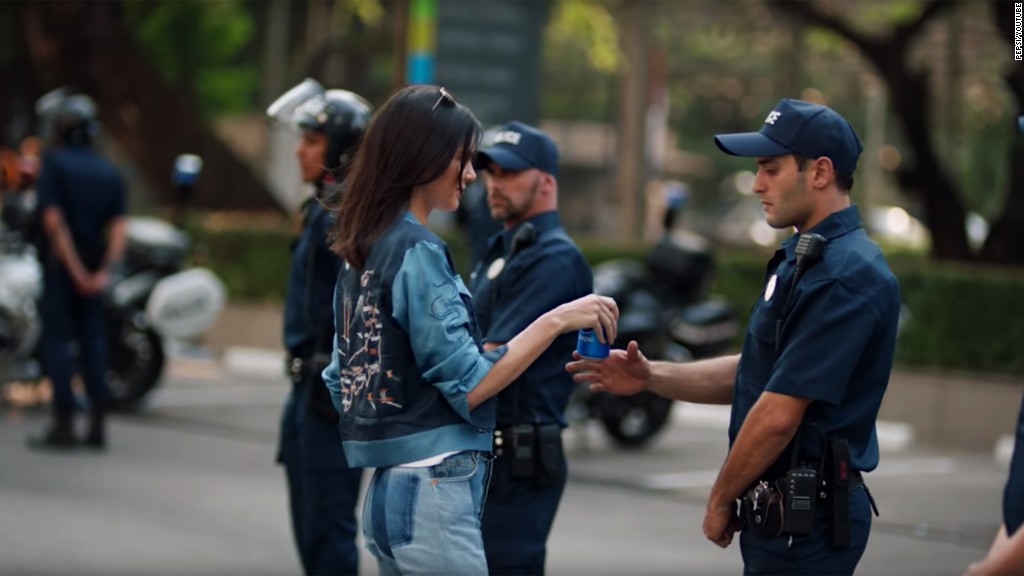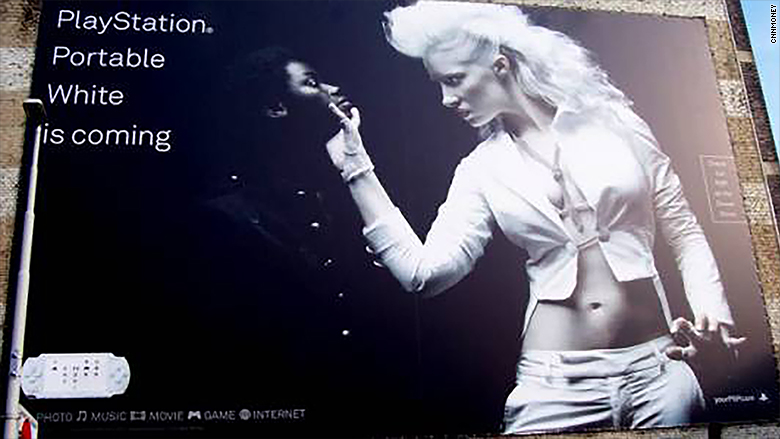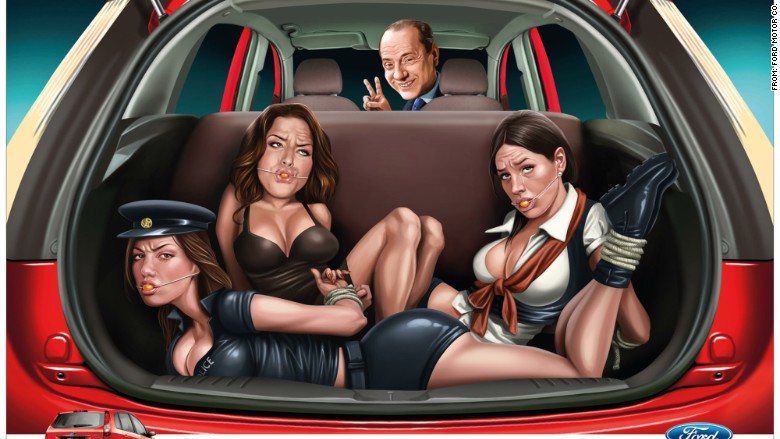
Pepsi's attempt to piggyback on a social movement with the help of Kendall Jenner is only the latest tone-deaf ad to backfire miserably.
The commercial, in which Jenner ditches a photo shoot to join a street protest and then gives a Pepsi to a police officer, might have been an attempt to capitalize on a message of youth and universal harmony. That's what Coca-Cola (KO) did with its iconic "Hilltop" ad in 1971, as "Mad Men" fans know.
But "I'd Like to Teach the World to Sing" this was not.
Pepsi pulled the ad and apologized on Wednesday after it was accused of exploiting the Black Lives Matter movement. Critics noted similarities between the ad and the famous photo of leshia Evans, a protester who peacefully faced off with Louisiana police after the fatal shooting of a black man last year.
It's only the latest doozy from Pepsi (PEP). In 2013, Pepsi pulled a Mountain Dew ad that depicted a beaten and distraught white woman facing a police lineup of black suspects and a goat.
Related: Pepsi pulls controversial Kendall Jenner ad
And Pepsi is far from the only offender. There's a long history of ads so tone-deaf that it's hard to understand how they ever saw the light of day.
-- Just Wednesday, Nivea, the German skin care company, pulled a deodorant ad that depicted a woman and the slogan "white is purity." The ad was posted on Nivea's Middle East Facebook (FB) page. The company ran into similar trouble in 2011, when it apologized for an ad depicting a black man and the slogan "Re-civilize Yourself."
-- In 2006, Sony (SNE) launched an ad campaign in the Netherlands with the slogan "PlayStation Portable White is Coming." The image featured a white model grabbing a black model by the face. Sony reportedly defended the ad, which was intended to "either highlight the whiteness of the new model or contrast the black and white models."

-- A Burger King ad that appeared in Singapore in 2009 depicted a woman with her mouth open and, suggestively placed next to it, the company's BK Super Seven Incher burger. The caption said, "It just tastes better." In a YouTube video years later, the woman said she didn't know her image was being used for that ad. Burger King reportedly blamed an ad agency in Singapore.
-- Bud Light bottles in 2015 sported the slogan "The perfect beer for removing 'no' from your vocabulary for the night," part of an ad campaign called Up for Whatever. Executives for the brand, which is owned by Anheuser Busch (BUDFF), later said they regretted the ad.
Related: Chinese detergent ad panned for racism
-- Ford (F) and the ad agency WPP apologized in 2013 for a "creative exercise" submitted for an ad competition. The artwork depicted women tied up and gagged in the back of a Ford Figo, a car available in India. Driving the car was Silvio Berlusconi, former prime minister of Italy.

-- SpaghettiOs, a product of the Campbell Soup Company, apologized in 2013 for acknowledging Pearl Harbor Day by tweeting a cartoon of a SpaghettiOs mascot waving an American flag. "We meant to pay respect, not to offend," SpaghettiOs said in a tweet.
-- DiGiorno Pizza apologized in 2014 for using the #WhyIStayed hashtag as a marketing tool without realizing that it was a reference to domestic violence. "A million apologies," tweeted DiGiorno. "Did not read what the hashtag was about before posting."
-- Last year, a Chinese company called Qiaobi ran a detergent ad that showed an Asian woman shoving a black man into a laundry machine, then pulling out an Asian man, whom she seemed to prefer. Like the Pepsi-Jenner spot, it was vilified not only for being offensive, but for being offensively clueless.


